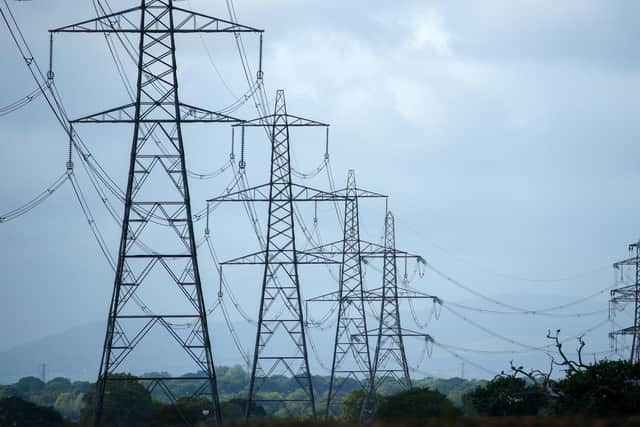Scottish MP accuses UK Government of ‘refusing to act’ as report warns average energy bill set to jump £700 a year
Liberal Democrats’ politician Jamie Stone is leading a Westminster Hall Debate today at a time the price cap on energy bill is expected to rise by 45 per cent.
It is believed without Government intervention, this rise could take the total number of households in fuel poverty to six million.
Advertisement
Hide AdAdvertisement
Hide AdMr Stone said: "Fuel poverty is a clear priority issue for remote rural constituencies, but an unacceptable blight across society.


“We are watching the nation plummet into a fuel poverty crisis and the Government has no plans to tackle it.
"In the far north, there is an absence of mains gas supply to many properties. The comparative price of electricity, which is four to five times higher than mains gas per unit, is used more heavily for things like heating water.
"The Highlands produces more than 300 per cent of its electricity demand from renewable sources, exporting the rest to other parts of the UK.
"And yet, due to the transmission charging regime, Highland households pay more per unit of electricity, pushing energy bills up even further. It's clear, energy policy in the UK is fundamentally broken.
"Solutions have been given from across the House of Commons. There has been cross-party support on cutting VAT from energy bills, extending the Warm Homes Discount, and implementing a one-off windfall tax on the super profits made by oil and gas companies.
"The list of sensible proposals goes on. So why does the Government refuse to act?"
Currently 33 per cent of households in remote rural areas of Scotland are in extreme fuel poverty, with a further 9 per cent in ordinary fuel poverty – a total of 42 per cent.
Advertisement
Hide AdAdvertisement
Hide AdThis compares to 24 per cent of households in the rest of Scotland.
It comes as a Resolution Foundation report estimates the average energy bill will jump from £1,277 to around £2,000 a year and warns of an “overnight trebling” of the number of households struck by fuel stress.
Analysis from the Joseph Rowntree Foundation (JRF) also found households on low incomes will be spending on average 18 per cent of their income after housing costs on energy bills after April.
Now the JRF is warning without additional support, people already in poverty are likely to find a sharp increase in energy bills very difficult to cope with.
Katie Schmuecker, deputy director of policy and partnerships at JRF, said: “The fact that more children are in poverty and sinking deeper into poverty should shame us all.
“Rising energy prices will affect us all, but our analysis shows they have the potential to devastate the budgets of families on the lowest incomes. The Government cannot stand by and allow the rising cost of living to knock people off their feet.
"The alarm is sounding loud and clear and the case for targeted support to help people on the lowest incomes could not be clearer.
“But this must go hand in hand with urgent action to strengthen our social security system, which was woefully inadequate even before living costs began to rise.
"The Government must do the right thing and strengthen this vital public service.”
Comments
Want to join the conversation? Please or to comment on this article.

